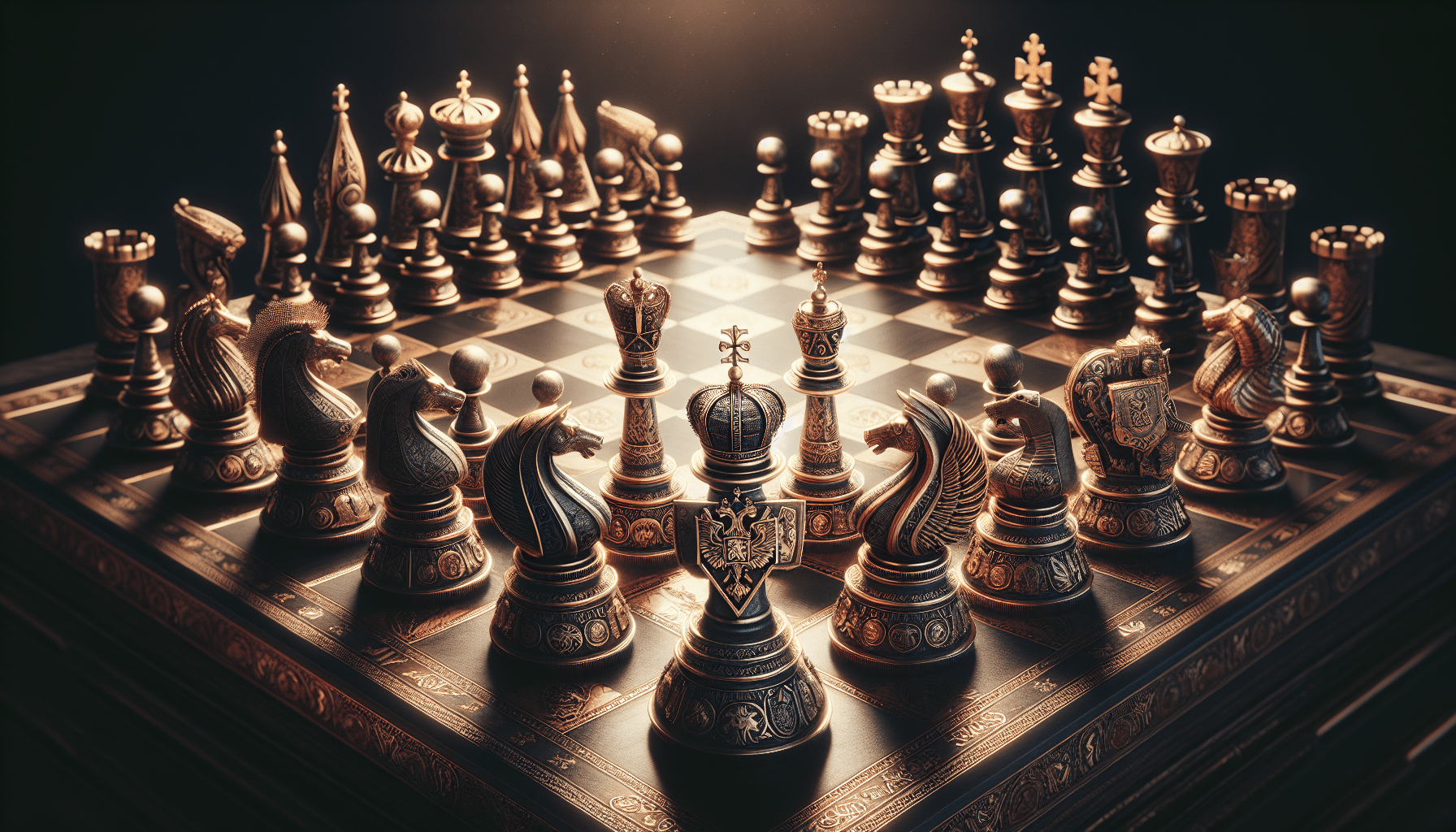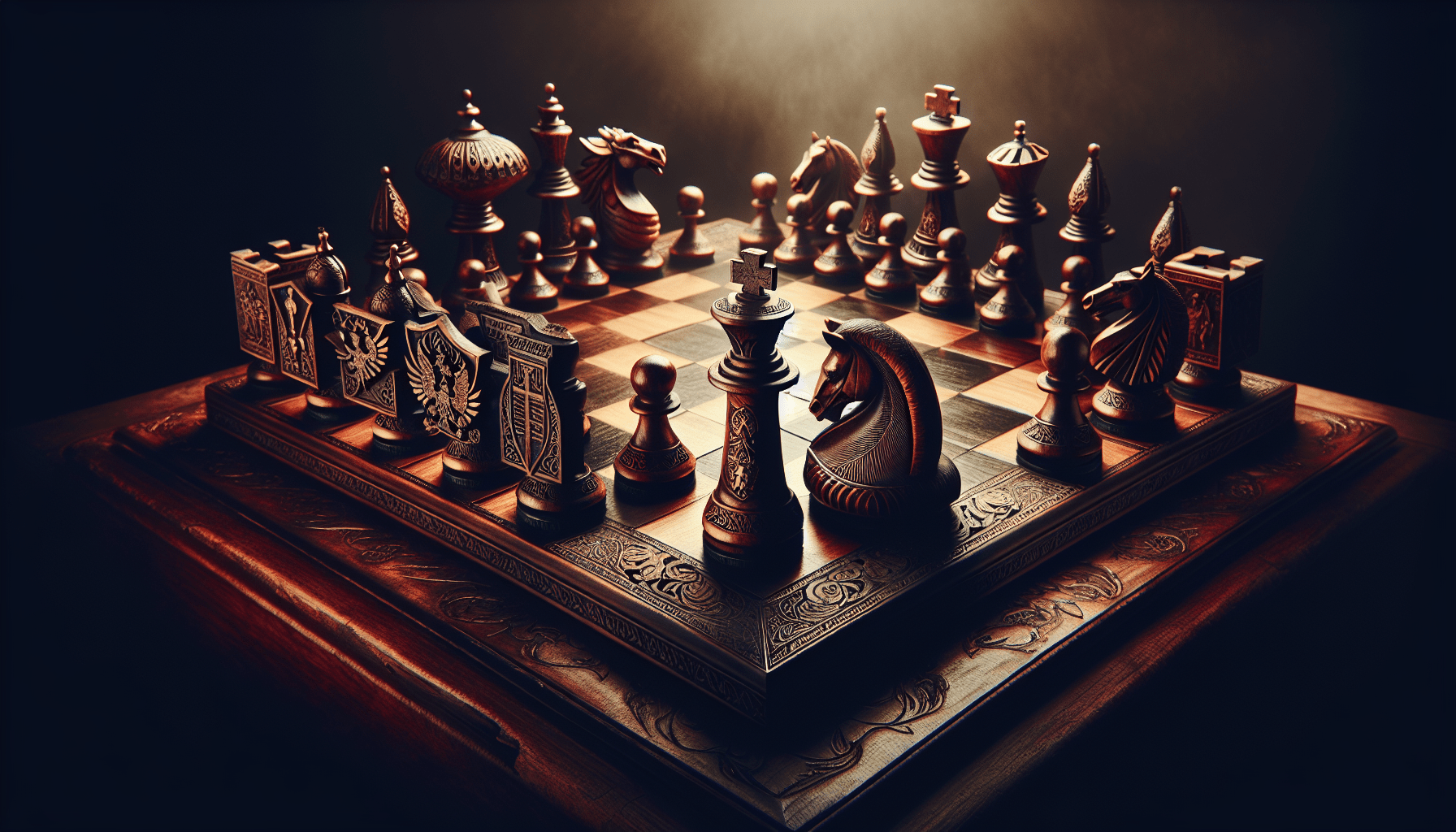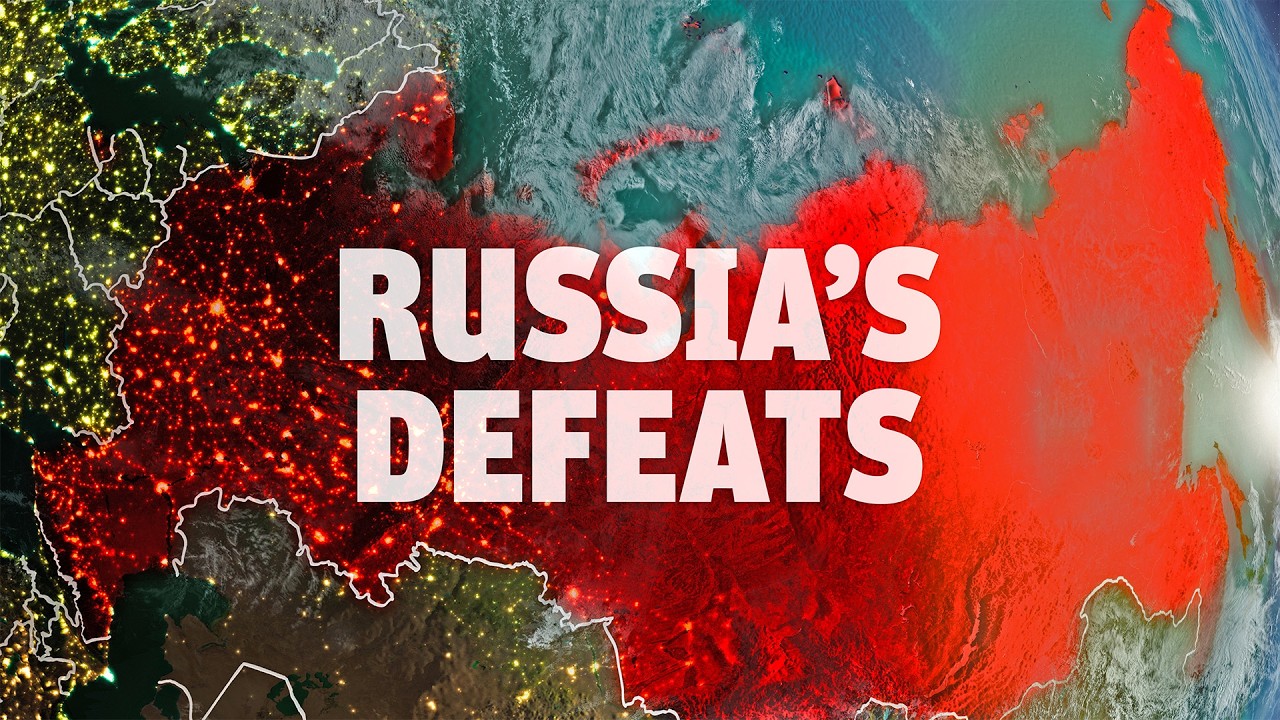The exploration of Russia’s military history reveals a nuanced narrative that questions the prevailing belief in its invincibility in warfare. This analysis examines the claims that Russia inevitably wins conflicts, particularly in light of its ongoing war with Ukraine. While historical victories such as the defeat of Napoleon and the triumphs of the Soviet Union during World War II bolster this perception, a review of military engagements reveals significant defeats that challenge the notion of a perpetual Russian success on the battlefield.
By scrutinizing various conflicts, including the Mongol invasion, the Crimean War, and the Russo-Japanese War, the complexity of Russia’s military legacy comes to light. These historical examples demonstrate that victories occur alongside notable failures, suggesting a more balanced understanding of Russia’s capacity for success in warfare. The article ultimately seeks to provide a comprehensive examination of Russia’s military record, urging a reconsideration of the assumption that the nation is destined to win its wars.
An Analytical Overview of Russian Military History

Historical Context of Russian Military Campaigns
Overview of Russia’s Military History
The military history of Russia is a complex tapestry woven from various threads of conquest, resilience, and strategic evolution. Encompassing the vast expanse of both the Russian Empire and the Soviet Union, it reflects not merely a series of battles won or lost, but a continual struggle for identity and survival amid shifting geopolitical landscapes. You should consider how Russia’s geographic vastness, along with its diverse climate and the numerous ethnicities of its populace, have fundamentally shaped its military objectives and strategies throughout centuries. The great strides in military capability have often been accompanied by equally notable failures, thus contributing to the dichotomy present in its historical narrative.
The Evolution of Warfare in Russia
Warfare in Russia has evolved over the centuries, influenced by both internal dynamics and external threats. In the early stages, engagements like the defense against the Teutonic Knights showcased a more feudal approach to war. However, as the state centralized under the Tsardom of Russia and later the Soviet regime, strategies became increasingly sophisticated. You might trace a notable transition from cavalry to mechanized warfare, particularly illustrated during the World Wars. The shift occurred as military innovations were adopted, and the tactics reflected an understanding of total war, involving civilian populations in the war effort.
Key Military Strategies Employed
The Russian military employs a variety of strategies shaped by historical context. You can identify several key strategies, such as the concept of ‘deep battle’ developed during the Soviet period, emphasizing offensive maneuvers that penetrate enemy lines and disrupt command and supply. Additionally, the reliance on scorched earth tactics, most famously employed during Napoleon’s invasion in 1812, reflected a calculated approach to preserve Russian forces at the expense of territory. Furthermore, the use of attrition warfare in World War II against Nazi Germany utilized the vastness of the Russian landscape to counterbalance initial tactical disadvantages.
Claims of Military Invincibility
Analysis of the Russian Military Narrative
The narrative of Russian military invincibility often surfaces in discussions surrounding its military engagements, particularly in the context of the ongoing conflict with Ukraine. Supporters assert that historical victories, manifest in expansive territorial conquests, reinforce an image of an indomitable military force. You might scrutinize this claim through an analytical lens, questioning the selective use of historical moments that fortify this narrative while overlooking substantial failures.
Factors Contributing to Perceived Superiority
Several factors contribute to the perception of Russian military superiority. First, the geographical extent of the nation provides strategic depth, allowing for resource mobilization and operational autonomy. Moreover, the social and historical context of Russian endurance plays a significant role in this narrative, as the populace’s suffering and resilience throughout past conflicts create an underlying belief in ultimate victory. It is essential for you to recognize that such beliefs can create a psychological boon but may not translate to consistent military success.
Dissecting the Myth of Invincibility
While historical victories indeed contribute to the image of invincibility, you should critically analyze the instance of defeats which are equally significant in shaping military capacity. The belief in perpetual success often oversimplifies the complexities involved in warfare. As history demonstrates, the vigor of the military depends on adaptable strategies, robust governance, and the morale of its forces—elements that may falter regardless of past glories.
Significant Russian Victories
Defeating the Teutonic Knights
One of the hallmark victories earlier in Russian military history was against the Teutonic Knights in the 13th century. This battle symbolized not only a military triumph but also the assertion of a nascent Russian national identity. You may note that this victory set the stage for greater unity amongst the Slavic principalities, which became vital in resisting further encroachments.
The Great Northern War
The Great Northern War (1700–1721) was another critical juncture in Russian military history. Under the leadership of Peter the Great, Russia emerged as a significant European power, decisively defeating Sweden. This victory expanded Russia’s territorial claims and demonstrated a shift in military strategy towards modernity. You can consider how this war laid the groundwork for Russia’s future military ambitions.
Victory Against Napoleon’s Invasion
Perhaps one of the most historically resonant victories for Russia came in the form of Napoleon’s ill-fated campaign of 1812. The combination of the vast Russian landscape and a scorched earth policy successfully stymied Napoleon’s advance. You should reflect on how this conflict cultivated a sense of resilience and national pride that endures in the Russian consciousness to this day.
The USSR’s Triumph in World War II
The USSR’s victory in World War II against Nazi Germany stands as a definitive moment not just in Russian history, but world history. The application of innovative tactics, coupled with immense sacrifices by the populace, showcased the Soviet Union’s military capabilities. You might find it intriguing that this historic struggle against fascism has significantly contributed to the present-day narratives surrounding Russian military identity.
Instances of Notable Defeats
The Mongol Invasion and the Fall of Kyivan Rus’
The Mongol invasion of 1237 profoundly impacted the trajectory of Russian history. You should factor in how the inability of the Kyivan Rus’ principalities to unite led to their downfall, resulting in over two centuries of subjugation under Mongol rule. This defeat is crucial to understanding the origins of the Russian psyche regarding military engagement.
Losses in the Livonian War
The Livonian War (1558–1583) saw significant conflicts that led to detrimental losses for Russia, particularly during the rule of Tsar Ivan IV. You must consider how the loss of territories and the subsequent civil strife known as the Time of Troubles highlighted the vulnerabilities of the Russian state, showcasing that military overreach could lead to dire consequences.
Defeats During the Napoleonic Wars
Subsequent defeats, particularly in battles such as Austerlitz (1805) and Friedland (1807), punctuated the Napoleonic Wars as moments of national embarrassment for Russia. You should analyze how these defeats shattered the previously held belief in invincibility and shifted the military doctrine towards a more defensive stance, significantly influencing future engagements.

The Crimean War: A Turning Point
Coalition Forces vs. Russian Strategies
The Crimean War (1853–1856) is pivotal in understanding the military challenges faced by Russia. Coalition forces, comprised of Britain, France, and Sardinia, effectively utilized modern warfare principles that exposed the shortcomings of Russian strategies. You might analyze how the reliance on traditional tactics in this conflict undermined Russian efforts and led to an unsustainable defense.
Consequences of Defeat and Military Reform
The consequences of defeat in the Crimean War catalyzed profound military reforms in Russia under Tsar Alexander II. You should reflect on how these reforms aimed at modernization greatly shifted institutional priorities and introduced general conscription, thus shaping future military engagements significantly.
Long-Term Effects on Russian Military Reputation
In light of the Crimean War, Russia’s military reputation suffered a considerable blow. You must consider how this defeat reshaped international perceptions of Russian military capabilities, leading to a period of introspection and recalibration in military and foreign policy.
Russo-Japanese War: A Major Setback
Key Battles and Turning Points
The Russo-Japanese War (1904–1905) marked another substantial setback for Russia, wherein key battles, including those at the Yalu River, Mukden, and the catastrophic naval defeat at Tsushima, highlighted a lack of preparedness and strategic foresight. You should analyze how this military failure served as a precursor to subsequent domestic turmoil.
Impact on Russian Society and Politics
The ramifications of the Russo-Japanese War thrust Russia into a period of instability. Socio-political repercussions contributed to widespread discontent that would culminate in the 1905 Revolution. You must contemplate how military failures can significantly influence the governance structures and societal sentiments within a country.
The Role of Media and Public Perception
The role of media in shaping public perception during the Russo-Japanese War cannot be understated. You might examine how sensationalist reporting on military defeats galvanized public sentiment against the government and demanded accountability, diverging from previous narratives of Russian invincibility.

World War I and the February Revolution
Initial Russian Involvement and Motivations
Russia entered World War I under the pretext of protecting Slavic interests and securing alliances with France and Britain. You should contextualize how this involvement was initially framed as a noble cause, generating a rallying spirit among the populace in the face of foreign aggression.
Major Defeats Leading to Political Upheaval
However, the mounting casualties and significant defeats in battles such as Tannenberg showcased the severe operational weaknesses of the Russian military. You may note how these failures broadcasted a narrative of incompetence, leading to widespread disenchantment with the Tsar and his government.
The Birth of Bolshevik Power and Subsequent Treaties
The culmination of military failures led to the February Revolution and ultimately the rise to power of the Bolsheviks. You should consider how the signing of the Treaty of Brest-Litovsk exemplifies the severe impact of military losses and how such treaties can alter national boundaries and influence future geopolitics.
Post-World War I Military Engagements
Civil War and the Red Army’s Struggles
The years following World War I were marked by the Russian Civil War (1917–1922), wherein the newly formed Red Army fought against a coalition of anti-Bolshevik forces. You might consider how the struggle for internal control proved much more formidable than external threats had been.
Conflict with Poland and the Peace of Riga
The conflict with Poland (1919–1921) and the subsequent Peace of Riga highlighted the political complexities of post-revolutionary Russia. You should analyze how these engagements were indicative of continued instability and the difficulty in consolidating military power amid shifting allegiances.
Military Implications of the Bolshevik Victory
Bolshevik victory during these turbulent years allowed for considerable reorganization of the military. You must explore how the focus on ideological warfare shaped the future of the Soviet military establishment and influenced both domestic and international strategies.
Failures of the Soviet Union in War
The Winter War and Its Implications
The Winter War (1939-1940) against Finland exposed significant strategic and organizational failures within the Soviet military. You should reflect on how despite initial territorial gains, the inability to secure a decisive victory had long-lasting implications for military doctrines.
Soviet Invasion of Afghanistan: Goals vs. Outcomes
The Soviet invasion of Afghanistan (1979-1989) aimed to support a communist regime but devolved into a protracted conflict that showcased an overextension of military resources. You must analyze this period in terms of its long-term influence on Soviet military reputation and the eventual collapse of the USSR.
Factors Leading to Military Failure
Numerous factors contributed to Soviet military failures during this era, ranging from inadequate intelligence to poor logistics and the underestimated resolve of local resistance. You should contemplate how these failures question the perception of invincibility that historically shaped Russian military identity.
Conclusion
Summary of Key Points
In reviewing this extensive overview of Russian military history, you should recognize the duality present in its narrative—marked by significant victories and notable defeats that have shaped its current military posture. The portrayal of invincibility, while fortified by some historical triumphs, must be examined critically against the backdrop of various failures.
Reflection on Russia’s Military Reputation
The military reputation of Russia is an intricate construct, one that oscillates between admiration and critique. You may contemplate how historical contexts, military strategies, and socio-political dynamics converged over time to create a complex legacy.
Future Perspectives on Russian Warfare
As you reflect on current developments, particularly in the context of Russia’s engagement with Ukraine, it becomes clear that military history is a continuous cycle of adaptation and transformation. Understanding this history provides critical insights into future military endeavors, and it is evident that the lessons of the past continue to resonate within the contemporary milieu.
Engaging with this narrative offers the opportunity to critically assess not merely Russia’s military capability but also the emotional and ideological forces shaping its national identity and future.
